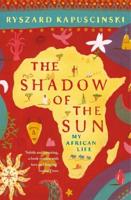Publisher's Synopsis
Senegal features prominently on the UNESCO World Heritage List. As many of its cultural heritage sites are remnants of the French empire, how does an independent nation care for the heritage of colonialism? How does it reinterpret slave barracks, colonial museums, and monuments to empire to imagine its own national future? This book examines Senegal's decolonization of its cultural heritage. Revealing how Léopold Sédar Senghor's philosophy of Négritude inflects the interpretation of its colonial heritage, Ferdinand de Jong demonstrates how Senegal's reinterpretation of heritage sites enables it to overcome the legacies of the slave trade, colonialism, and empire. Remembering and reclaiming a Pan-African future, De Jong shows how World Heritage sites are conceived as the archive of an Afrotopia to come, and, in a move towards decolonization, how they repair colonial time.










